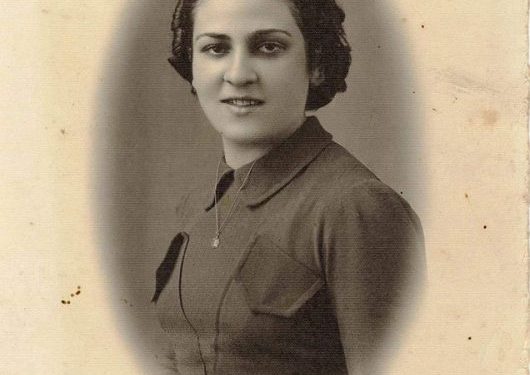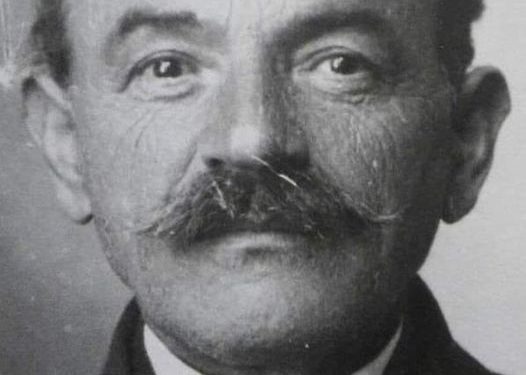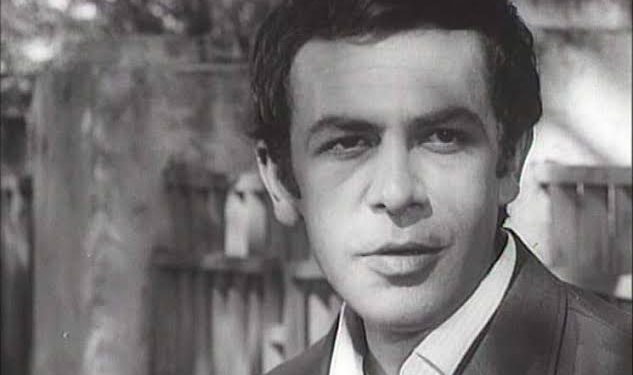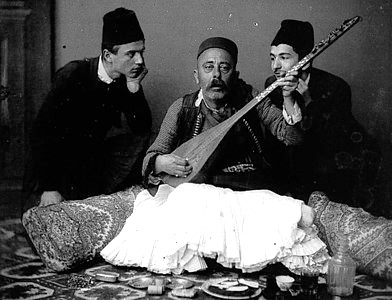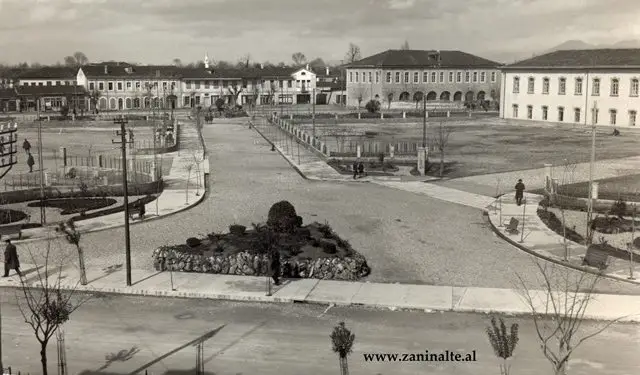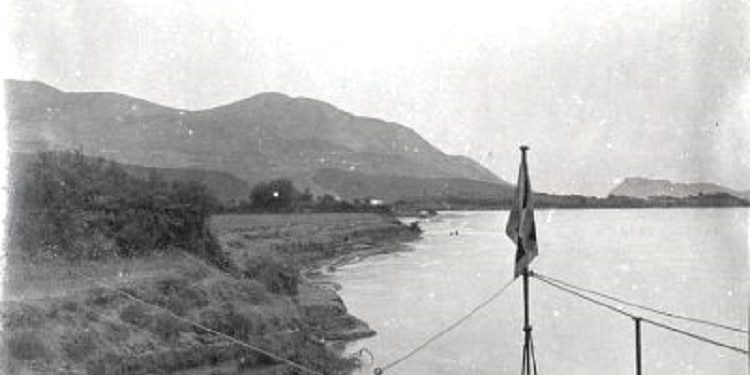By Bajram Mjeku
Memorie.al / The dearest wish from my mother, when I was a child and even later as I began to grow up, was: “May you be as handsome as a boy from Shkodra!” And in my childhood imagination, a certain belief was created that Shkodra only had handsome boys, but not beautiful girls! The beautiful woman from Shkodra in the photo is Angjelina Logoreci-Ljarja, more precisely the mother of the actor and icon of Albanian cinematography, Rikard Ljarja.
Angjelina Logoreci was born on May 4, 1918, in Shkodra. She was the daughter of Pjetër and Marie Logoreci and was the sister of seven brothers. One of her brothers, Anton Logoreci, was an excellent student at the University of Cambridge, who in 1940 directed Radio-London in the Albanian langu1age. A short time later, Antoni was the head of the BBC Radio, Albanian Language Section for the Eastern Europe Sector.
She was the niece of Mati Logoreci and the great-niece of the Archbishop of Skopje, Andrea Logoreci, and gave birth to two children: the actor Rikard Ljarja and a daughter, Ernesta Ljarja, who lives in Canada. Angjelina was married to Karl Ljarja, who had completed his German language studies in Vienna.
She grew up among distinguished personalities, and the noble Logoreci family had Father Gjergj Fishta, Ernest Koliqi, Dr. Frederik Shiroka, Luigj Gurakuqi, and other prominent figures as friends of the house. Angjelina passed away on September 11, 1981, in Tirana.
This photograph was taken during the 1930s at the “Marubi” Studio in Shkodra, which makes you think for a long time and go back to where, more precisely, the hands of the evil Albanian clock stopped.
Before the communist regime, the Albanian woman was treated as a noble and dignified being in Albanian society, and her rights were strongly protected earlier by the Kanun and later by the Constitution of the Albanian State.
For half a century that the communist empire ruled, in Albania, the Albanian woman was treated as a manual laborer, a cooperativist, and little more. The situation went so far that female corporativists even reached the Political Bureau of Stalinist Albania!
In Kosovo and other Albanian areas in former Yugoslavia, the Albanian woman was treated as a downtrodden and forgotten being, even qualified as a “slave,” with the small exception from the second half of the seventies and later.
But, in Albania, the most dangerous experiment took place, when the Stalinist regime, while trying to graft the new man, went so far as to force the Albanian woman to do the heaviest physical work, began to deform the Albanian race, the most beautiful on the Old Continent.
To write about the beautiful and noble woman from Shkodra, Angjelina Logoreci-Ljarja, it is impossible not to also write about her son, the great actor Rikard Ljarja. Several years ago, when the icon of Albanian cinematography, Rikard Ljarja, passed away, out of great sadness and not accepting his physical departure, I neither wrote about him nor wanted to accept that he had passed away.
The only condolences I offered for him were to my dear friend from Shkodra, Pjetër Logoreci, as Rikardi was his aunt’s son. I met Rikard Ljarja for the first time in Tirana in January 1996. I have never met any Albanian in my life that had such deep knowledge in the field of culture and politics as Rikard Ljarja.
I have never heard an Albanian have such great visions and creative ideas for the political right as the actor Rikard Ljarja. Even today I am convinced that if the Albanian right-wing parties on both sides of the border (if they are truly right-wing) had taken even a little advice from the great Rikard, the two Albanian states would not have fallen into the state they are in.
Above all, Rikard Ljarja remains a great actor on the Albanian film scene, who looked beautiful, like his own mother in this photograph. / Memorie.al




